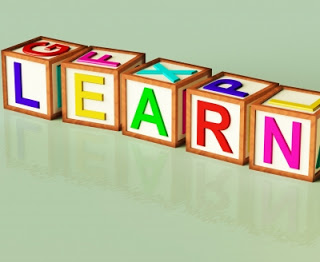Guided Play: Helping Kids Learn Through Play

As a parent, you may wonder if all that time you spend with your child playing with blocks and puzzles really helps them learn anything. In an age in which new, high-tech toys are showing up on shelves everyday, it is tempting to think that "old fashioned" toys like blocks and puzzles are boring. However, new research is showing us that this is far from the truth.
A recent study by researchers at Temple University showed that young children who played with blocks along with an interactive adult developed a larger spatial vocabulary (e.g., words like "under" or "over"). Spatial vocabulary, not surprisingly, is associated with the development a better spatial abilities. Having good spatial abilities is not only important if you dream of your child becoming an engineer, they also come in handy in everyday life. If you've ever tried to put together a piece of unassembled furniture, you know the importance of spatial skills. The key aspect of this study is the role that parents play in interacting with their children at play. In the study, children were placed in three groups to compare: (1) "free" play with the blocks with little assistance from adults, (2) "preassembled" play in which the blocks were glued together into a structure, or (3) "guided" play in which adults helped children create a structure based on graphic instructions. As you might expect, children in the "guided" play group showed the highest development of spatial vocabulary. This was due to the fact that children learned concepts like "over" and "under" from listening to the adults work with them in creating the block structure.
Beyond the development of spatial skills, this study reminded me of the importance of this idea of "guided" play. Play really is the "work" of childhood and research has shown repeatedly how play-based learning fits better with young children's developmental capabilities than rote learning. Play-based learning, however, doesn't necessarily mean that kids should be left to their own devices all the time; some adult guidance is useful in helping kids structure their play and learn new concepts. This doesn't mean you have to instruct your child how to play, but offering some ideas or a starting point is often helpful. I have found in playing with my son (age 2.5) that he will often come up with an idea of something he wants to create or imitate based on something he saw in a book or video, but he doesn't quite know how to implement it. Once he mentions an idea, I will then help him come up with the tools (usually whatever toys are lying around) to create his vision. For example, he recently read about a combine in a farm book so he wanted to play with one. Since we didn't have a toy combine, I showed him how to create one out of Legos. Luckily, kids have great imaginations and almost any combination of Legos can turn into the desired object. Once he had his creation in hand, he was off and playing with very little intervention from me. I think one of the main messages of the Temple study is this idea of guided play. Playing with blocks in itself is not magical, it's the guidance and vocabulary offered by adults that really seems to make the difference in children's learning. "Guided play" may sound like a daunting task, but it's really just a return to your childhood and in the process helping your child discover his or her world. Source
Понравилась статья? Подпишитесь на канал, чтобы быть в курсе самых интересных материалов
Подписаться